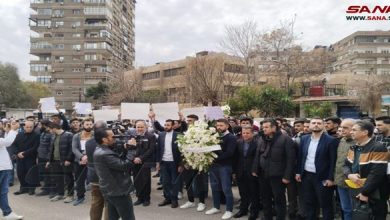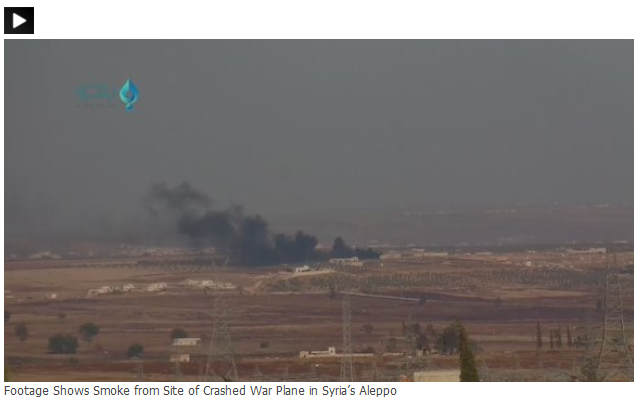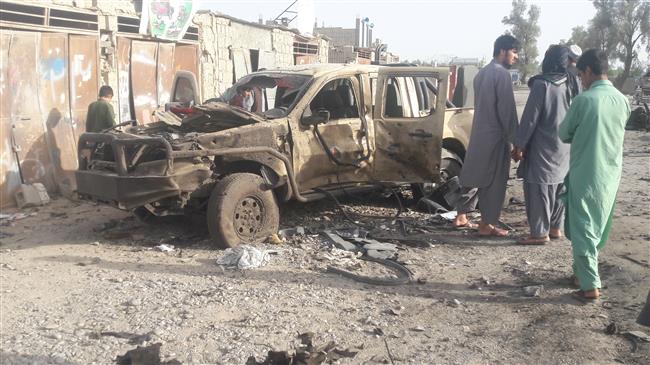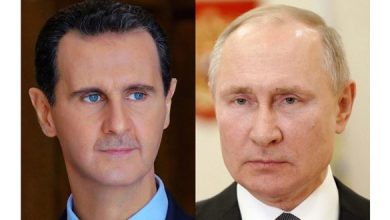FM: Iran Supports Any Initiative to End Russia-Ukraine War
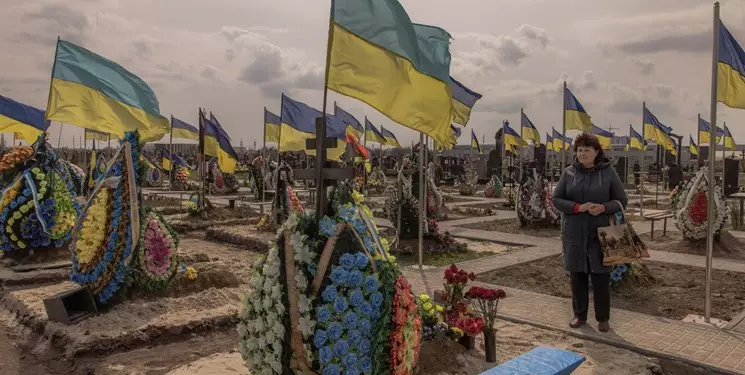
Iranian Foreign Minister Hossein Amir Abdollahian said that Tehran backs political settlement of the conflict between Russia and Ukraine as well as any peace initiative for ending the war between the two neighbors.
The top diplomat made the remarks during a meeting with the Vatican’s Secretary for Relations with States Archbishop Paul Richard Gallagher on the sidelines of the 78th Session of the United Nations General Assembly (UNGA) in New York on Sunday.
“Iran does not consider war a solution. It supports any initiative to achieve peace in Ukraine,” he stressed.
Elsewhere in his remarks, Amir Abdollahian underlined the need for a global approach to terrorism gripping West Asia.
He further decried certain countries’ use of sanctions as a political tool against other nations, warning that the bans would complicate regional issues and lead to humanitarian consequences.
Gallagher, for his part, underscored that it is necessary for everyone to help to establish peace in Ukraine.
The archbishop stressed the importance of dialogue to settle global problems and expressed his readiness to continue consultations with the Iranian side on issues of mutual interest.
He further predicted that the restoration of relations between Iran and Saudi Arabia would have positive effects in the region.
Iranian officils say the war between Russia and Ukraine has been the outcome of the hegemonic policies and excessive demands of the US and its allies, and call on the architects of the crisis and its supporters to reconsider their wrong attitudes.
Tehran has reiterated that it will not help either side in the Russia-Ukraine crisis, and cautioned that arming Moscow or Kyiv will prolong the war between the two neighbors.
NATO has undergone several waves of expansion between 1999 and 2020, swallowing up every former member of the defunct Soviet-led Warsaw Pact, three ex-Soviet republics and four republics from the former Yugoslavia. The expansion took place despite former US Secretary of State James Baker’s verbal promise to Soviet leader Mikhail Gorbachev in 1990 not to expand the alliance “one inch” East of the territory of the former East Germany following that country’s annexation by the Federal Republic.
In 2008, NATO recognized the aspirations of the pro-Western governments of Ukraine and Georgia to see their countries join the alliance, sparking serious security concerns from Moscow. Tensions between Russia and the West were exacerbated in 2014, after the Ukrainian government was overthrown in a coup d’état orchestrated by Washington, and the post-coup government in Kiev reiterated its ambitions join the European Union and NATO.
In Late February 2022, President Vladimir Putin stated in response to a request by the heads of the Donbass republics he had made a decision to carry out a special military operation. The Russian leader stressed that Moscow had no plans of occupying Ukrainian territories.
In a meeting with President Putin in Tehran in July 2022, Supreme Leader of the Islamic Revolution Ayatollah Seyed Ali Khamenei slammed the NATO as dangerous entity that knows no borders and boundaries and had to be stopped in Ukraine.
“War is a harsh and difficult reality, and the Islamic Republic will in no way be happy if it entangles ordinary people,” the Leader said.
The Supreme Leader emphasized that the Western powers are opposed to the existence of a strong and independent Russia, arguing that the NATO is a dangerous creature, and if the path before it is left open, it realizes no borders and boundaries.
“If NATO’s path had not been blocked in Ukraine, a while later on pretext of the Crimean Peninsula they would have begun the same war,” he added.
Iranian President Seyed Ebrahim Rayeesi has also cautioned that the expansion of the NATO is a serious threat to the stability and security of nations.
He described NATO’s expansionist policies as one of the causes of insecurity and instability in different parts of the world and stated, “As foreign policy thinkers, advise politicians and statesmen so that the people of different parts of the world do not bear the cost of their mistakes”.

